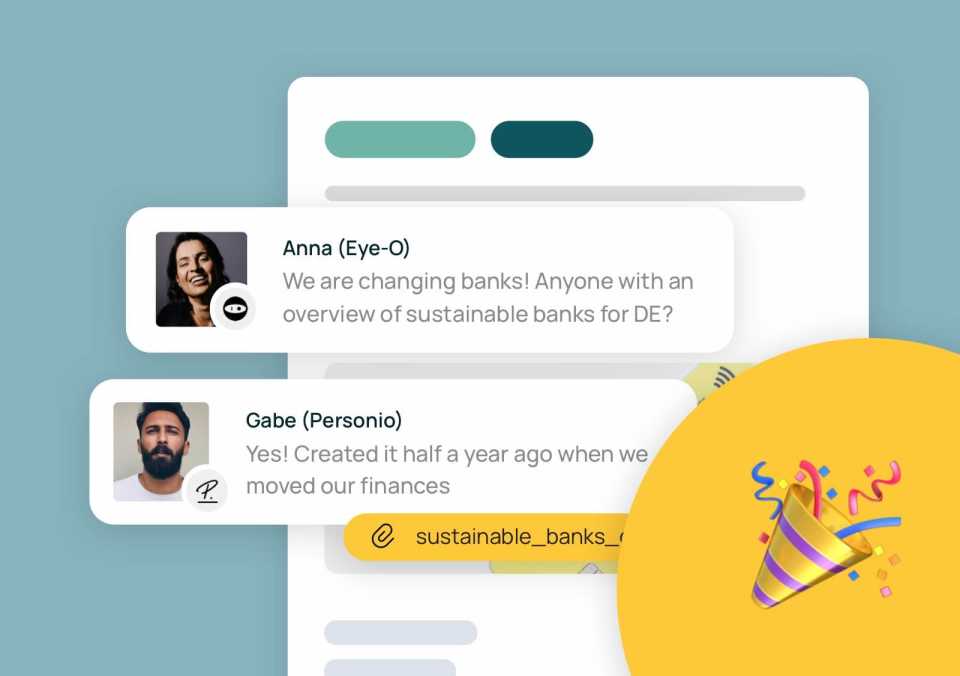It’s 2022. A fresh start after a year that wasn’t exactly an easy one for our society as a whole. The various crises around us seem increasingly unsurmountable: COVID-19 is not slowing down and the climate emergency is worsening with every day that passes. And yet, it’s not all winter blues! We’ve been busy working on what we dubbed internally “LFCA 2.0” and I am excited to reveal our plans on how we plan to change the course of corporate climate action for the years to come.
The problem: Much noise and little action
Long story short: Regardless of 991.249 (please don’t count them) climate pledges and hundreds of industry initiatives being launched in the last 5 years, the emissions in 2021 continued to rise and reached new global heights, the COVID-19 dip is long gone. It’s obvious that we need to step up our climate game in the years to come if we want to have a realistic chance to avoid reaching dangerous tipping points. But that’s easier said than done. To change this trend we need to first understand why things are moving so slowly. Luckily we have a pool of more than 1500 members to learn from...
Challenge 1: It’s time to attack our supply chain emissions
The development of corporate climate action is undeniable. A couple of years ago companies would be celebrated for announcing “climate neutrality” by offsetting their direct emissions. Today, offsetting your Scope 1 & 2 emissions gets you little media attention and rather raised eyebrows as it’s impossible to be “carbon neutral” in isolation. And this is a good thing! The time of “easy wins” is coming to an end, and the focus is shifting more and more towards real reduction in particular in our messy and complicated supply chains.
We’ve had countless interviews with all of you over the past months and we learned that most companies are still hesitant with implementing actions that touch their core business model. And yet, we all know that this is where the impact lies. Not just because of the direct emission savings, but because of the network effects: Think about the rippling effect if marketplaces like Idealo or Zalando demand change from their thousands of partner companies.

Challenge 2: Internal Green Teams acquire relevant knowledge, but it stays within company borders
When it comes to preventing a climate disaster, time is our biggest enemy. We all know that the clock is ticking and yet, change is hard and often slow. When interviewing members to define new actions for our programs, we learned that every single Green Team in our community has accumulated significant knowledge about certain climate challenges. These treasures can be simple excel sheets, e.g. a comparison of sustainable financial institutions, or how-to guides for setting climate OKR’s in your teams. Since more and more companies start to take action, more and more silos of valuable knowledge grow in our organizations.
How can we tackle these challenges as a community?
Solution 1: Creating business specific and pragmatic solutions for entire cohorts
A few months ago we started experimenting with a new approach to climate action for our community. Our scale today allows us to build cohorts of companies that are standing in front of very similar challenges. There is no need to give the same generic advice to hundreds of companies separately, instead we can share these actions with an entire market segment. That’s exactly what we started to do with one of our biggest cohorts: E-Commerce.
Together with our members and partners we developed a practical guide consisting of 13 Ecommerce actions, ranging from sustainable shipping to sourcing of sustainable materials. We shared and presented this knowledge through our action platform, collected your commitments and created mastermind groups based on your answers.
Solution 2: Mastermind groups can bridge the gap from knowledge to action
Mastermind groups consist of 5-10 Climate Officers from different teams working towards a similar goal. These groups meet on a monthly basis and are moderated by our team. They create accountability and allow to share brain power to solve real problems. I myself attended a few of these meetings and I am still amazed by the energy and focused discussions that I took part in. It truly reveals the power of collective action. The experiment is now running for almost 3 months and we are confident enough to start bringing similar groups to other segments of our community.

Solution 3: Accumulating knowledge in one central platform instead of creating hundreds of separated knowledge silos (Building the GitHub of Climate Action)
With every passing master mind group, with every Slack conversation between our members, we as a community accumulate knowledge: We hear reviews of service providers, we learn how to free up resources for climate action in organizations, we understand how to talk to our partners about the challenge. In order for us to truly accelerate the change we need to make sure that this knowledge is easily accessible by other community members and the public. Enter: The LFCA climate action platform.
Over the last couple of months we added several new features to our platform to "bring the community into the product". Members can now see which other companies are working on each of the action modules, and they can share their own learnings and even material with others in a comment section under the modules. This helps us to break down the knowledge silos that many internal climate teams have acquired over the last couple of years. And it enables You to leverage your influence and help others towards reaching our shared goal!

Solution 4: Incentivizing change with our new action framework and increased transparency
We also made significant progress on how to recognize companies for change and track our progress as a community. Our new action framework comes with a revised leveling system that will help you to take science backed climate action. It is aligned with the well known UN initiative “Race to Zero”. Taking action along the lines of this new framework will automatically lead to you conforming with their requirements as well.
Our leveling system divides your climate action activities into 4 pillars: Measure, Goal Setting, Reduction and Contribution. For each of these pillars we provide a badge as soon as you prove that you excel in the respective field. As an example: If you used the widely acknowledged Science based targets initiative (SBT) for your longterm climate goals, we will acknowledge this with the “Certified climate goals” badge. You can read up details on the badges here.

Our new company overview page already reflects these changes, so make sure to ask your team to keep the data in our system up to date!
Solution 5: Activating our sphere of influence
While the mastermind groups and the improved science backed leveling are new benefits for you, our focus on leveraging our influence as companies and leaders remains in place. We are currently preparing our new Time for Climate Action Campaign 2022, that we will launch around Earth Day. Last year we reached 24 Million end users with the help of great companies like Spotify, Ecosia and co.
If you have not yet signed up for the campaign, make sure to do it now!

A stable financial model for our growing team
In 2021 we managed to make a huge leap forward - we started with a team of just 3 Full time employees and have since managed to grow to a team of 10. With a clear match plan, revised community benefits and a proven model, it is time to create a more solid financial fundament to deliver on our promises. In the past months, we have started rolling out a paid membership model in order to decrease our dependence on single donations. In the spirit of Open Knowledge, we will keep operating a free tier for companies who can't afford to pay (check the requirements if you are eligible).
The decisive decade
Climate Scientists are sure that the 20’s are the decisive decade that is going to determine if we manage to finally move on a path that will prevent devastating consequences in the decades to come. We are now in year 2 of this decade and time is running, so let's speed up our game together and make sure that we contribute our part and enable us and future generations livable conditions on this wonderful planet.

